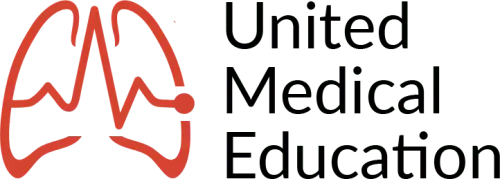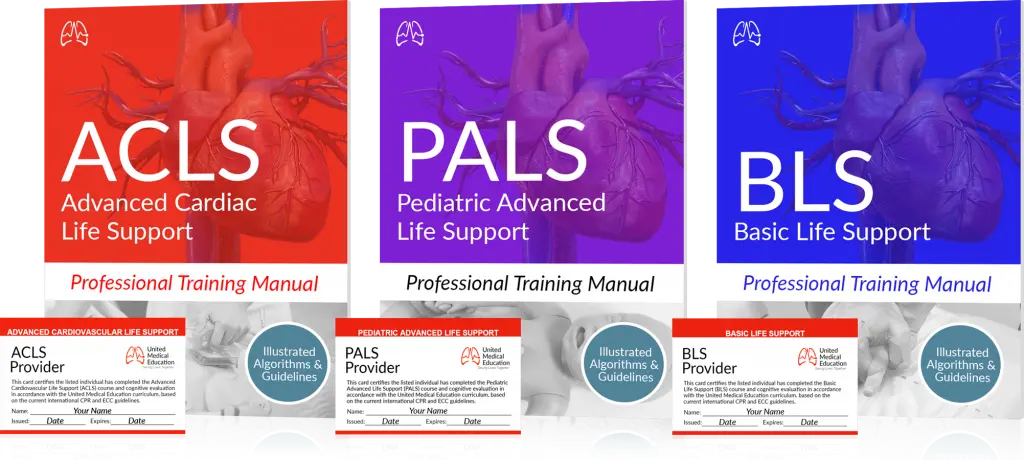
Katrina Nillas
Katrina Nillas is a Registered Nurse and Professional Writer. She has built a career creating educational materials for both patients and healthcare professionals.
Blood plays a vital role in maintaining certain balances in the body, like carrying nutrients, oxygen, and regulating temperature. All of the organs in our body receive these properties through proper blood flow.
Normal blood pressure is vital for proper blood flow. However, when our blood pressure dangerously rises, it alters the body’s normal circulatory function and can result in some dangerous conditions. High blood pressure affects one of three people in the United States and 1 billion people worldwide.
In this article, we will learn more about the dangers of high blood pressure and how to manage it.
What is hypertension?
When the heart beats to push blood through the arteries and the rest of our body organs, the pressure created by this force is your systolic blood pressure. When the heart rests between beats, this pressure is your diastolic blood pressure.
High blood pressure is medically known as hypertension. This medical condition occurs when our body’s blood pressure elevates to unhealthy levels. When the blood begins its journey away from the heart, the blood pressure is at its highest. As blood moves into smaller branches of arteries its pressure decreases.
Simply put, hypertension happens when the blood travels through blood vessels with more pressure than what is considered normal and healthy.
Blood pressure of 120/80 mmHg is considered normal and healthy. Elevated blood pressure occurs when the numbers consistently reach a systolic pressure over 120-129 mmHg, and a diastolic pressure more than 80 mm Hg.
Hypertension Stage 1 is when the systolic blood pressure ranges from 130-139 mmHg and has a diastolic pressure of 80-89 mmHg. When the blood pressure is consistently above 140/90 mmHg, it is already considered hypertension stage 2. Even sudden spikes in your blood pressure can be dangerous. A hypertensive crisis is an emergency condition that requires immediate intervention. This condition happens when the blood pressure readings rise quickly and exceed 180/120 mmHg.
Types of Hypertension and Their Causes
There are two types of hypertension: primary hypertension and secondary hypertension. Each type has corresponding causes.
Primary Hypertension
For primary hypertension, the identifiable cause include blood plasma volume, hormone activity, and certain environmental factors such as stress and lack of exercise. Primary hypertension slowly develops and is usually linked to risk factors like genetics, environment, and physical changes. Unfortunately, some people diagnosed with this type of hypertension have no idea that they have it until symptoms show.
Secondary Hypertension
Unlike primary hypertension, secondary hypertension develops quickly and can be more severe. Also, secondary hypertension is often linked to severe medical conditions such as kidney disease, adrenal disease, congenital heart defects, thyroid problems, and obstructive sleep apnea.
What are the symptoms of hypertension?
Hypertension is commonly known as a silent killer. An estimated 46% of adults with hypertension are unaware of their condition. This medical condition can develop without warning signs and visible symptoms.
In some cases, when symptoms start to show, these symptoms may include:
-
Buzzing in ears
-
Flushing
-
Headaches
-
Vision changes
When the case is severe, symptoms may include:
-
Blood in urine
-
Chest pain
-
Confusion
-
Muscle tremors
-
Nausea
-
Vomiting
Severe hypertension requires immediate medical intervention. The symptoms can be fatal and put you at risk for heart attack and stroke. When severe hypertension remains uncontrolled, the prognosis is often poor. Prolonged excessive blood pressure in the body can result in hardening of the arteries, and the slowing or even blocking of proper circulation of blood and oxygen to the heart.
What are the effects of hypertension on the body?
The effects of hypertension on the body start small and build up over time. When hypertension stays undiagnosed for a long time, the risks and complications are generally more severe.
- Circulatory System
The increased blood pressure causes direct damage to the arterial walls as blood travels. The damage can start as small tears. These small tears attract bad cholesterol where it then attaches. As bad cholesterol builds up, the arteries become more narrow, allowing less blood to get through.
When the artery gets blocked, proper blood circulation is compromised. This event leads to tissue damage as the proper flow of blood, oxygen, and nutrients is hindered from reaching important organs.
As a response, the heart pumps harder but is still less effective because of hypertension and blockage of the artery. As time progresses, the heart can develop an enlarged ventricle (the part that pumps blood) because of the extra work. This series of events in the body predisposes you to a heart attack.
- Nervous System
The damage to the brain resembles that which happens in the heart. When the blood flow to the brain remains compromised, it may lead to memory loss and other cognitive problems. Dementia is one of the cognitive problems that is characterized by loss of memory and mental function deterioration.
However, when a larger part of the circulation system to the brain is damaged, stroke becomes a significant risk. Hypertensive damage to the nervous system is life-threatening, and is the reason why people call hypertension the silent killer.
- Respiratory System
Hypertension can also damage the arteries in the lungs. The medical term for a blood clot causing a blocked artery in the lung is called a pulmonary embolism. The prognosis of this condition when in a main pulmonary artery is poor because it can dramatically affect the overall oxygenation of the outgoing blood.
- Skeletal System
Hypertension causes the blood to eliminate a mineral that is vital for life and survival called calcium. Elimination of calcium in the blood causes damage in the skeletal system in the form of Osteoporosis, a condition characterized by less bone mass and strength.
- Reproductive System
In men, hypertension affects the ability of the penis to erect effectively since, during arousal, it needs additional blood flow. Narrow blood vessels make it harder for an erection to occur. In women, the narrow blood vessels caused by hypertension contribute to a decrease in sexual desire and also vaginal dryness.
- Urinary System
Hypertension causes damage to the kidneys and long term hypertension can result in kidney disease. If the hypertension remains untreated, it can even lead to kidney failure.
Helpful Tips for Hypertension
One of the most effective changes that you can control to prevent hypertension starts within yourself. Some of these include lifestyle changes:
1. Starting a heart-healthy diet
A heart-healthy diet is one of the basic steps in preventing hypertension. This diet does not only manage early detected hypertension; it also reduces the risk of severe diseases. As a result, it would be best to consider a heart-healthy diet composed of fruits, vegetables, whole grains, and low in dairy products. Also, you must control the sodium (salt) in your diet.
2. Getting regular exercise to increase physical activity
Regular exercise or any form of physical activity promotes proper blood circulation, controls stress hormones, and helps strengthen your cardiovascular system. Aerobic exercise for at least 30 minutes a few days a week is considered a good start.
3. Eliminating stressors
The presence of stressors in life raises blood pressure, so you need to know how to manage and eliminate them. Invest in learning about stress-reducing techniques like deep breathing, meditation, and yoga. A stress-free life is always a healthier life.
4. Decreasing alcohol consumption
Some people struggle to decrease alcohol consumption, especially when drinking has become their routine. Alcohol is linked to 16% of the high blood pressure cases worldwide.
5. Regular monitoring of blood pressure
Early detection of hypertension is still the best way to prevent complications and avoid serious problems. It would be a good idea for you to have a blood pressure cuff at home. Nowadays, there are digital ones that automatically read your result. Also, be sure to have your routine physical with your physician.
More importantly, keeping a record of your blood pressure readings will help you see any possible problems before a condition advances.
6. Maintaining a healthy weight
Obesity increases your risk for hypertension. So, it would be best to maintain proper weight to avoid it leading to any other problem. Monitor your weight regularly because the heavier you get, the more prone you are to severe diseases like diabetes, stroke, and heart attack.
7. Eating foods rich in calcium
Studies have not found a conclusive link between calcium supplements and lowering blood pressure, but calcium-rich diets are linked to positive outcomes. The recommended calcium intake for adults is 1,000 (mg) per day, and for men over 70 and women over 50, the intake is increased to 1,200 (mg) per day.
It would be best to incorporate calcium-rich foods into your diet. For example, you can get calcium from green, leafy vegetables, sardines, and tofu.
8. Complying with medical treatment
Doctors often recommend a low dose of medication to manage hypertension. The good thing about these hypertensive medications is the side effects are mostly minor. Also, it is essential for people diagnosed with hypertension to comply with the medical treatment prescribed by the doctors.
More importantly, it is best to consult with a doctor than to take over-the-counter medications. Safety is always a priority, especially when it comes to health-related problems.
Dietary Recommendations for Hypertension
The National Heart, Lung, and Blood Institute (NHLBI) in the United States recommends the DASH (Dietary Approaches to Stop Hypertension) diet. This diet suggests several servings from various food groups with a few limitations. Having risk factors for hypertension requires you to follow these dietary recommendations to prevent further complications.
Dietary recommendations for hypertension include:
-
Limit intake of foods that are high in cholesterol, saturated fats, and trans fats.
-
Consume more whole foods like fruits, vegetables, and whole grains.
-
Eat more fish, poultry, and legumes.
-
Limit sodium (salt) in your diet.
-
Drink low-fat or skim dairy products instead of using the cream of full-fat.
-
Cut sugar in your diet. If possible, do not incorporate sweetened products.
The Bottomline
Hypertension is a condition that can wreak havoc on your health, and you will never know when it will strike. It is always important to realize that the majority of the time, hypertension exists without warning signs. The long-term effects of hypertension brings an increased risk of other severe problems like heart disease. Plus, it is the leading cause of stroke.
Hypertension is like a thief in the night that surprisingly comes and robs us of what is left in us. So, early detection of this medical condition is very crucial. Learning to prevent complications is also just as important. We must not take health-related problems lightly. You can prevent this condition before it advances, but you need to act as soon as possible.






